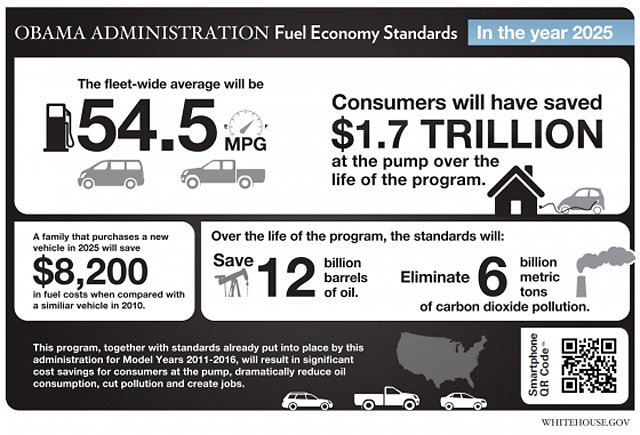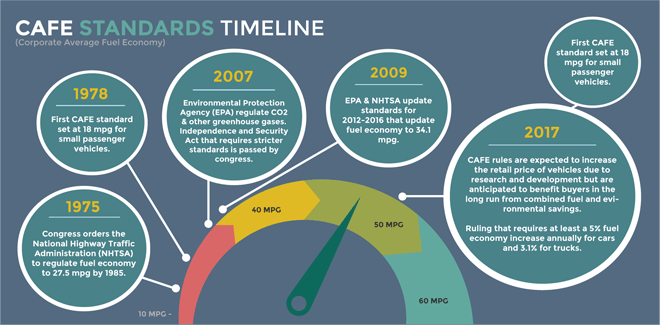Attacks On Fuel Efficiency Standards
Saturday February 23rd… Dear Diary. The main purpose of this ongoing post will be to track United States extreme or record temperatures related to climate change. Any reports I see of ETs will be listed below the main topic of the day. I’ll refer to extreme or record temperatures as ETs (not extraterrestrials).😉
One of my earliest posts on this site described and forecast how the Trump Administration would react to the climate crisis, becoming a “three headed monster:”
https://guyonclimate.com/2017/03/15/burn-baby-burn/
Quoting myself: “So now those of us who have been working on the climate change problem are up against a three headed monster- The potential of a half trillion dollar oil deal with Russia, reduction of environmental standards for vehicles purposely resulting in a bigger market for oil, and a reduction in science’s ability to keep tabs on carbon pollution damage. All of this to a lesser degree is like the three headed monster of what tobacco companies wanted to do back in the 1970’s and 80’s: produce more cigarettes, get more people to smoke, and stymie any science and legal efforts uncovering truth. Now the truth of the climate problem, at least for awhile, will play second fiddle to alternative facts in association with big money oil.”
The half trillion dollar oil deal with Russia in the short run has not worked out, but that does not mean that the other two heads of the monster aren’t still bighting. Fast forward from early 2017 to early 2019 the planet still is awash in oil, so the Trump Administration is furiously attacking fuel efficiency standards so that profits can be maximized within the petroleum industry. Today I am presenting more news on CAFE standards:
Quoting from the Washington Post:
The Trump administration has broken off talks with the California Air Resources Board over vehicle fuel-efficiency standards and is on track to roll back standards set by President Barack Obama, the White House said in a statement Thursday.
The breakdown sets up a potential clash over the state’s long-standing ability to set its own more stringent standards for tailpipe emissions and fuel efficiency, a power the courts have upheld for the past half-century. California and 19 other states have demanded the Trump administration abandon the rollback.
The administration has vowed to freeze fuel-efficiency standards for cars and trucks at 2020 levels, undoing a regulation Obama established to reduce oil imports, slash carbon dioxide emissions that cause climate change, improve public health and save consumers money without compromising safety. It argues that the Obama-era requirements would make vehicles more expensive and encourage people to stick with older, less-safe cars and trucks.
“Despite the administration’s best efforts to reach a common-sense solution, it is time to acknowledge that CARB [the California Air Resources Board] has failed to put forward a productive alternative,” the White House said in a joint statement with the Environmental Protection Agency and Transportation Department.
However, some California officials said real talks never really began. They said sessions between the heads of the Environmental Protection Agency and CARB were not substantive and never progressed into the nitty-gritty of policy negotiations.
“The administration broke off communications before Christmas and never responded to our suggested areas of compromise — or offered any compromise proposal at all,” CARB spokesman Stanley Young said in an email. “We concluded at that point that they were never serious about negotiating, and their public comments about California since then seem to underscore that point.”
California’s power to set its own standards dates back to 1967 legislation and has been reaffirmed every time Congress amended the law. “It is tempting to see this feud as just another in a series of squabbles between the administration and California. However, the state’s independent regulatory authority to set more stringent fuel-efficiency standards was set by Congress over 50 years ago,” said Gary Guzy, a lawyer at Covington & Burling. As an Obama administration official, Guzy led White House efforts to establish the fuel-efficiency standards.
Critics of the Trump administration have said the proposed freeze in those standards would benefit the oil and gas industry and cost consumers at the pump. They also warn that a legal battle with California could result in a massive upheaval in the nation’s automotive market if car makers eventually have to meet different standards in different states.
The Obama regulations, which run through 2026, would raise the corporate average fuel economy, or CAFE, standards for new cars and trucks to 36 miles a gallon in what the EPA calls real-world driving. The sticker mileage would rise as high as 54.5 miles a gallon. The Trump administration change would reduce that to 29 miles a gallon in real-world driving, according to Daniel Becker, director of the Safe Climate Campaign.
(Inserting a graphic not presented in the Washington Post article):

Continuing:
“It looks as if the administration is hellbent on driving the clean car standards off the cliff,” Becker said. He added that while automakers say they want regulatory certainty, “the only certainty they’ll know about is that there will be years of litigation.”
Margo Oge, a former director of the EPA’s Office of Transportation and Air Quality who helped set auto regulations under Obama, called the Trump administration’s fuel-standards proposals “a horrible deal for the planet, U.S. consumers and the U.S. economy.”
The change would have long-lasting effects because Americans tend to drive their vehicles for an average of 16.6 years, according to a new study by David R. Keith and two other experts from the Sloan School of Management at the Massachusetts Institute of Technology.
“Improvements in the performance of the on-road fleet lag improvements in the performance of the new vehicles being added to the fleet,” the authors wrote.“
They said that freezing fuel-efficiency standards “will lead to a significant increase in fleet emissions to 2050 and beyond, because relatively less fuel-efficient vehicles sold between 2020 and 2026 will remain on the road for decades and place us on a trajectory of sustained higher vehicle emissions subsequently.”
The breakdown of talks will almost certainly trigger litigation.
“There’s no question that California has the authority to set its own vehicle standards and that states can choose to adopt those standards,” said Michelle Robinson, director of the Clean Vehicles Program at the Union of Concerned Scientists.
She said the growing number of states that have chosen strong standards like California’s make up a third of the U.S. auto market. “These states will keep their own strong standards in place and challenge the Trump administration’s attacks,” she said.
[Even in Trump’s America, California could decide how cleanly your car runs]
Even without the tougher CAFE standards, many automakers are pushing ahead with ambitious plans to produce more electric and hybrid vehicles. However, replacing 90 percent of the vehicles now on the road would take 19.6 years, according to the MIT paper, with light trucks lasting longest. As a result, people tend to be “overly optimistic about how quickly new technologies can diffuse into the on-road vehicle fleet.”
Moreover, the Auto Alliance, a group of leading carmakers, has said that regulations must take market realities into account. The group notes that there are 80 car models that get 40 miles a gallon or more but that the sales of such vehicles are small.
“Selling gas-guzzling cars and trucks might continue to drive short-term profit, but abandoning the standards now in place would run counter to the longer arc of consumer demand, state regulations and international market forces,” Oge said. “Looser standards now, when consumers and many states are demanding cleaner cars, would spell trouble for the auto industry. Almost everyone loses except the oil industry.”
Meanwhile, the Competitive Enterprise Institute, an advocacy group that has received funding in the past from the fossil fuel industry, cheered reports that the Trump administration was ceasing talks with California.
“When it comes to CAFE, California has been illegally calling the shots for too long, and usually at the expense of the public,” CEI’s general counsel, Sam Kazman, said in a statement Wednesday. “If reports are correct, we’re glad to see that the administration now views California as a state, rather than a key negotiating partner.”
Again here, the old Climate Guy is shaking his head. Trump continues to want to take us down a self destructive path just so that some of his cronies in the oil industry can see maximum short term profits. A reduction in CAFE standards would go a long way to achieving this goal.

Actually, as far as the Green New Deal goes raising CAFE standards would be a necessary but temporary step to be taken before all internal combustion engines would be replaced by electrics. Let’s all work to see brands like Tesla become predominant on the road soon.
…………………………………………………………………………………………………..
Here is some more climate and weather news from Saturday:
(As usual, this will be a fluid post in which more information gets added during the day as it crosses my radar, crediting all who have put it on-line. Items will be archived on this site for posterity. In most instances click on the pictures of each tweet to see each article.)
Here is one ET from Alaska:
(If you like these posts and my work please contribute via the PayPal widget, which has recently been added to this site. Thanks in advance for any support.)
The Climate Guy